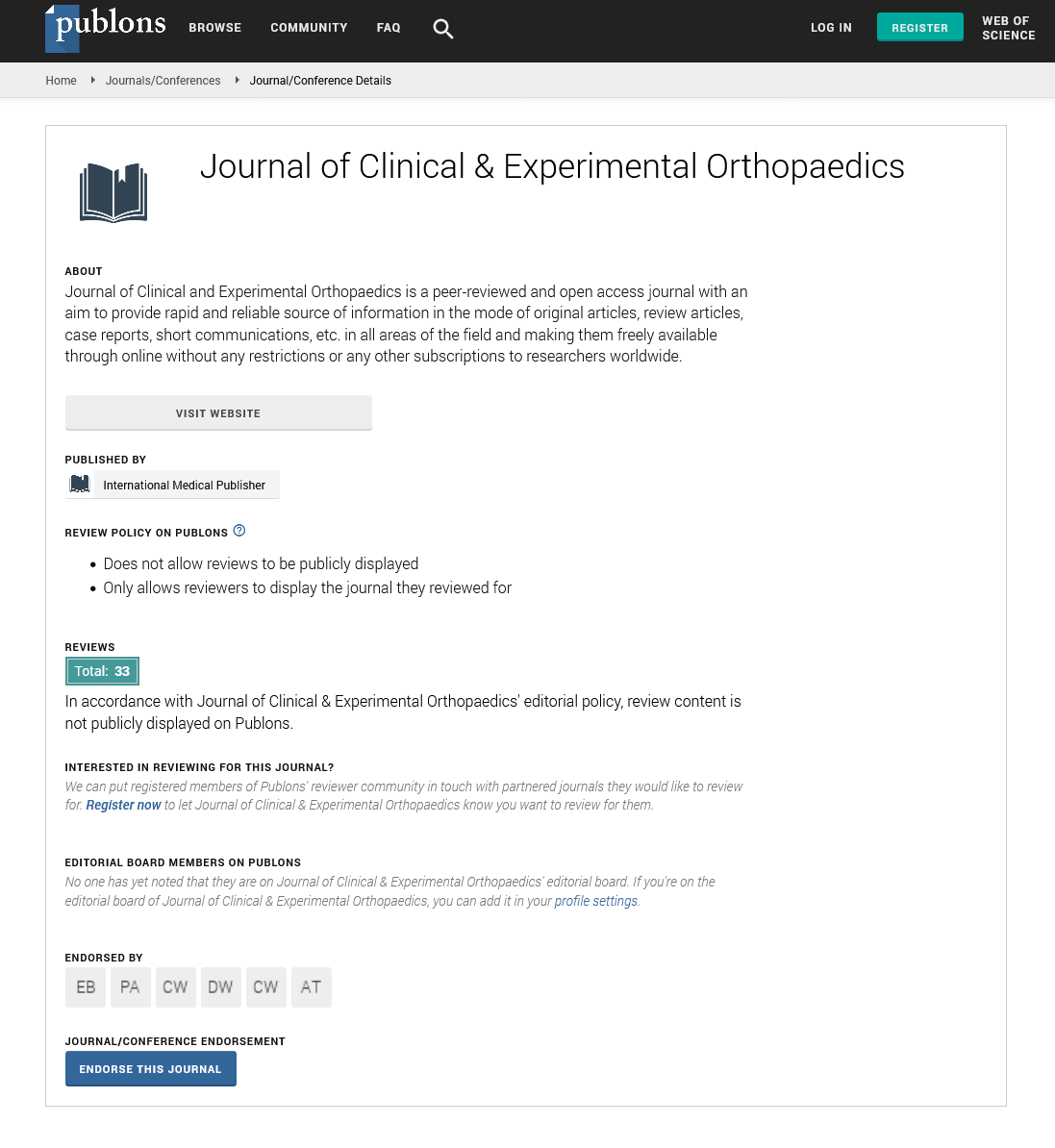ISSN : ISSN: 2471-8416
Journal of Clinical & Experimental Orthopaedics
Native knee septic arthritis: sensitivity and specificity of investigations
European Conference on Orthopedics and Osteoporosis
November 29-30 , 2018 Amsterdam , Netherlands
Paul Andrzejowski
Bradford Royal Infirmary, UK
ScientificTracks Abstracts: J Clin Exp Orthop
Abstract
Introduction: One of the most common investigations in orthopaedics is aspiration of the native hot swollen knee for septic arthritis: patients often discharged if gram stain is negative. This is a serious condition: mortality of 4-42% is seen. Literature demonstrates wide variation in positive sample rates. We aimed to compare results of initial microscopy and inflammatory markers with definitive culture and sensitivities (CS). We also assessed quality of departmental handover documentation and process. Methods: We identified all patients from Oct’ 2017-Jul’ 2018 from handover lists at our orthopaedic unit presenting with hot swollen native knee joints. We used clinical information systems to retrospectively collect data; audited based on 2007 joint national UK guidelines. Results: 1) Microbiology: total patients: 62, negative Gram stain (GS) and negative CS: 55, negative GS and positive CS: 7, positive GS and positive CS: 0, positive GS and negative MCS: 0. Culture: Staphylococcus aureus 50%, Strep G 16%, others: 16%. GS Sensitivity: 0, Specificity: 1, positive predictive value (PPV): 0, negative predictive value (NPV): 0.98. Pus cells 3+: sensitivity 1, specificity 0.83, PPV 0.17, NPV 0.92. WCC>12: sensitivity 0.57, specificity 0.83, PPV 0.17, NPV 0.92. CRP>0: sensitivity 1, specificity 0.41, PPV 0.12, NPV 1. Documentation audit: WCC documented: 88%, CRP documented: 90%, urate documented: 24%, complete microscopy result documented: 59%, 48 hr date for MCS documented: 0%, 5 day MCS date documented: 18%. Process audit: WCC taken: 100%, CRP taken: 99%, urate taken: 64%, synovial fluid taken before Abx: 97%, aspirate taken: 100%, MCS obtained: 100%. Discussion: We showed low sensitivity of blood tests and GS results in predicting positive septic arthritis, with some usefulness of pus cells. This emphasises importance of clinical history and examination in informing initial management decisions. A bigger investigation is warranted. To improve handover process, we designed a new proforma.
Biography
Paul Andrzejowski completed his Bachelor of Medical Science (Hons) in 2011 and Bachelor of Medicine and Surgery degree in 2013 from the University of Nottingham, UK. He has recently passed MRCS Membership exams to the Royal College of Surgeons of Edinburgh. He has completed his core surgical training programme in Yorkshire with a special interest in Trauma and Orthopaedics, and is currently working as a Research Fellow in Trauma and Orthopaedics at the Leeds General Infirmary.
E-mail: paul.andrzejowski@nhs.net
Google Scholar citation report
Citations : 161
Journal of Clinical & Experimental Orthopaedics received 161 citations as per Google Scholar report
Journal of Clinical & Experimental Orthopaedics peer review process verified at publons
Abstracted/Indexed in
- Google Scholar
- China National Knowledge Infrastructure (CNKI)
- Directory of Research Journal Indexing (DRJI)
- WorldCat
- Publons
- Geneva Foundation for Medical Education and Research
- Secret Search Engine Labs
Open Access Journals
- Aquaculture & Veterinary Science
- Chemistry & Chemical Sciences
- Clinical Sciences
- Engineering
- General Science
- Genetics & Molecular Biology
- Health Care & Nursing
- Immunology & Microbiology
- Materials Science
- Mathematics & Physics
- Medical Sciences
- Neurology & Psychiatry
- Oncology & Cancer Science
- Pharmaceutical Sciences
